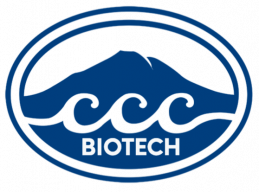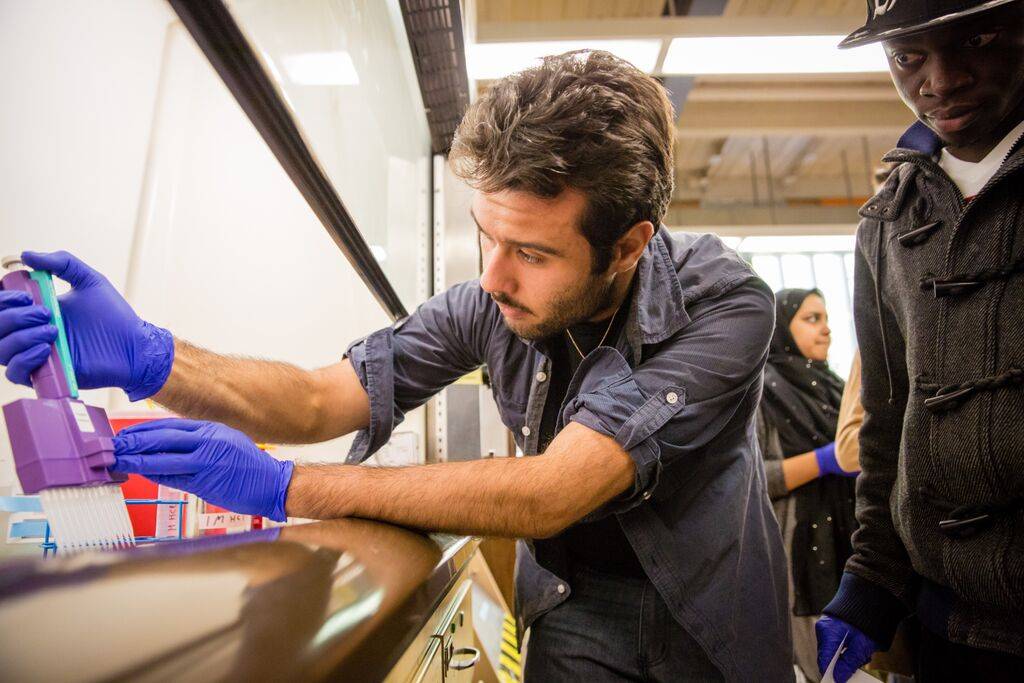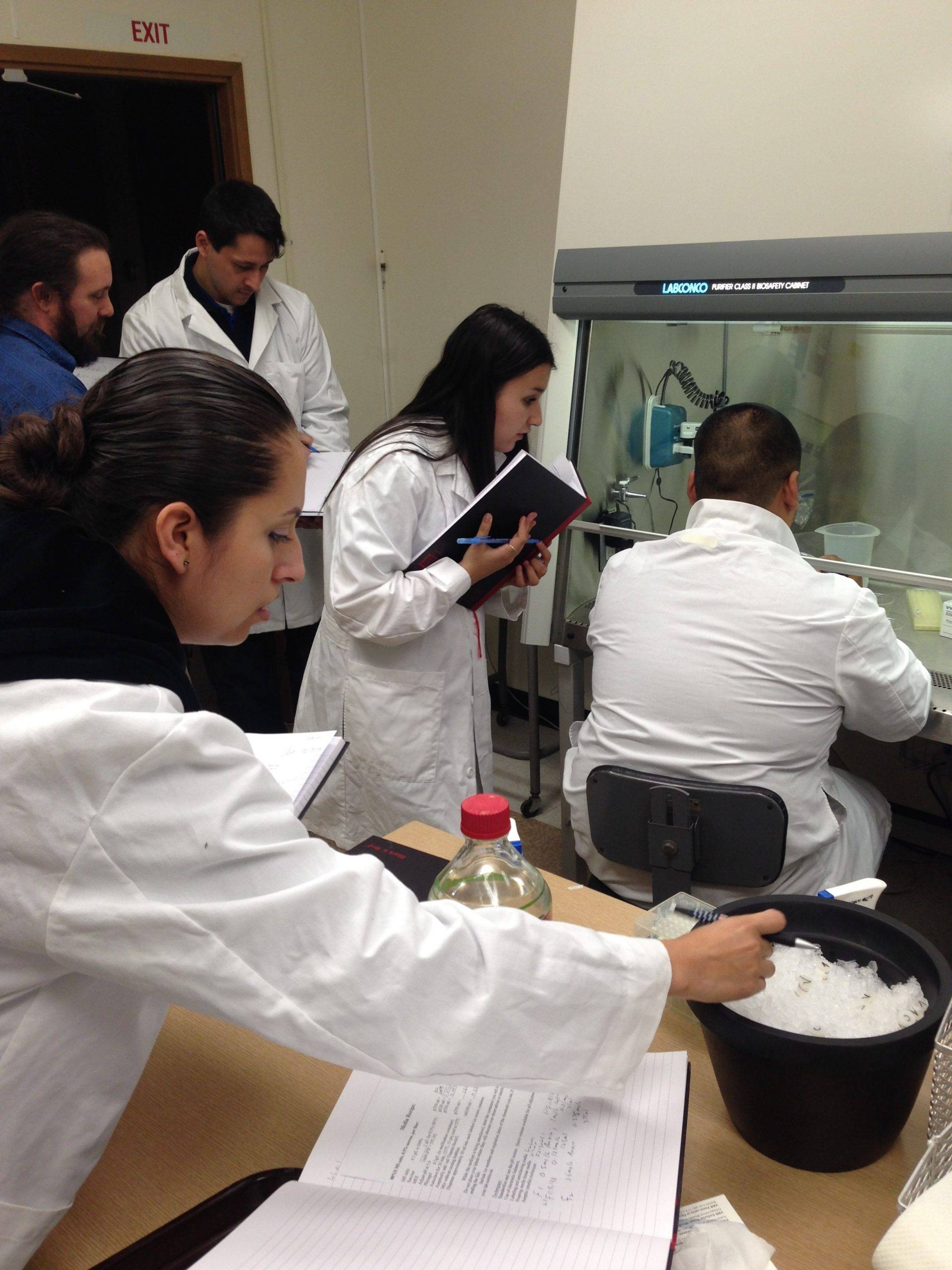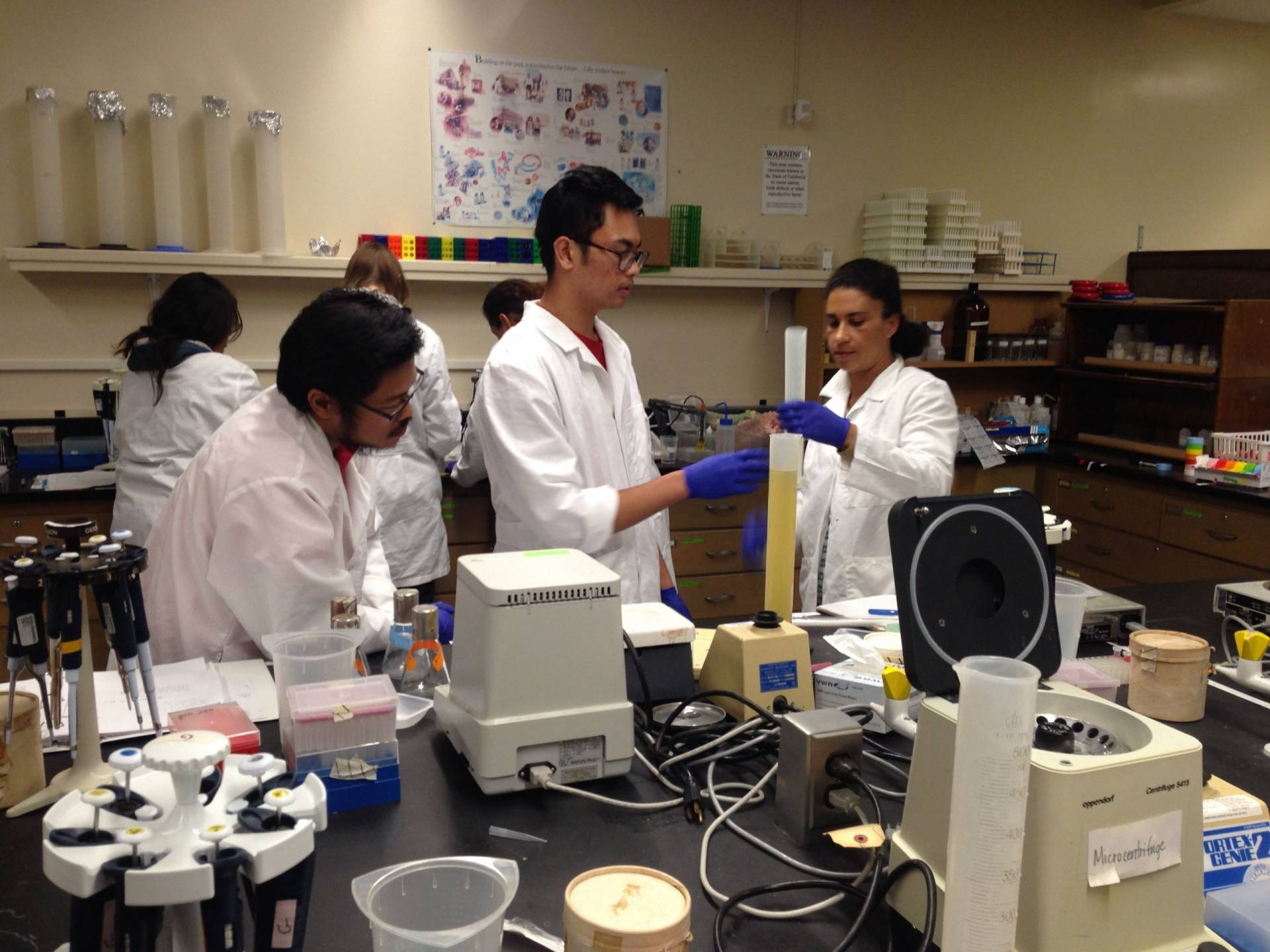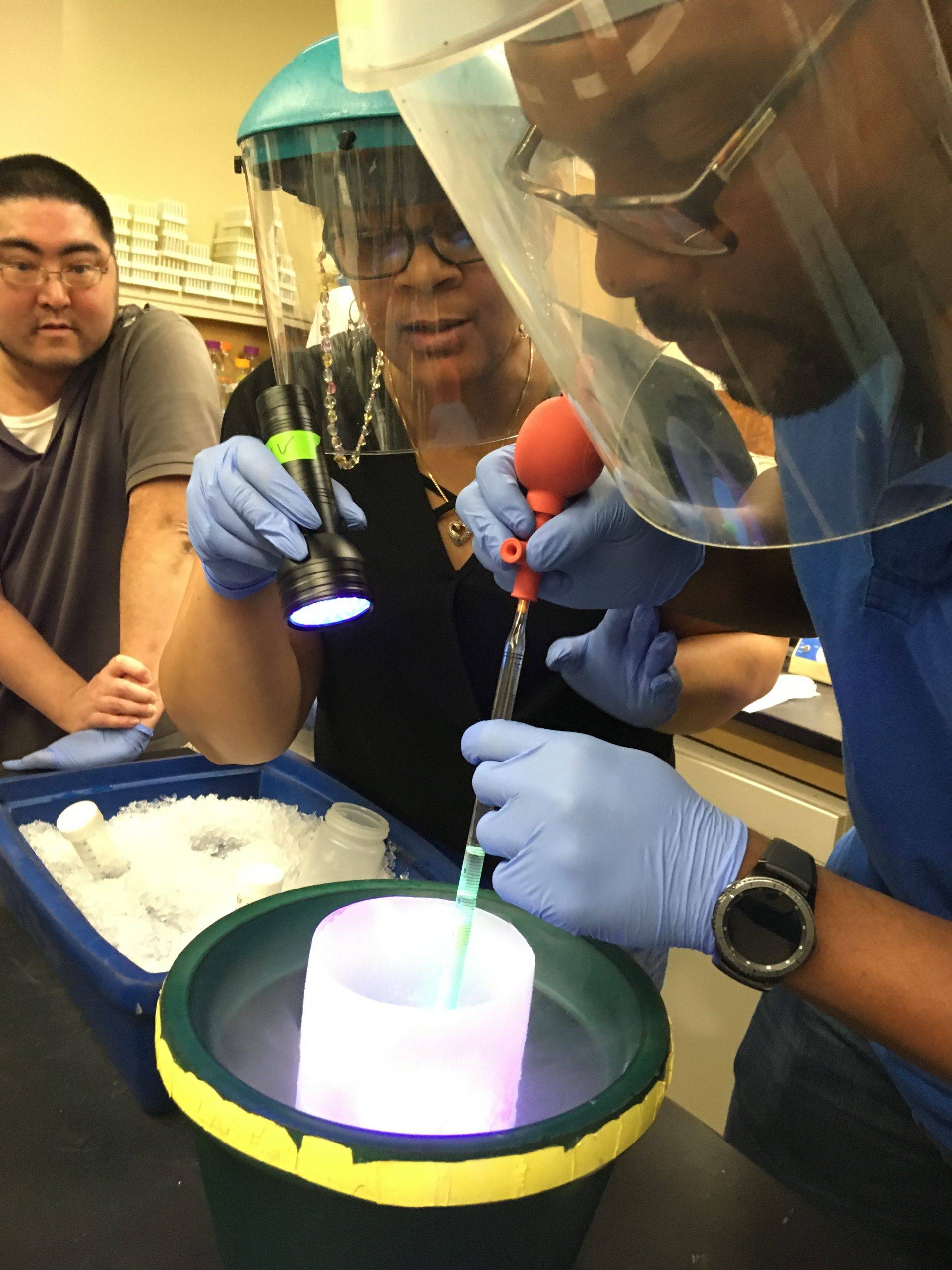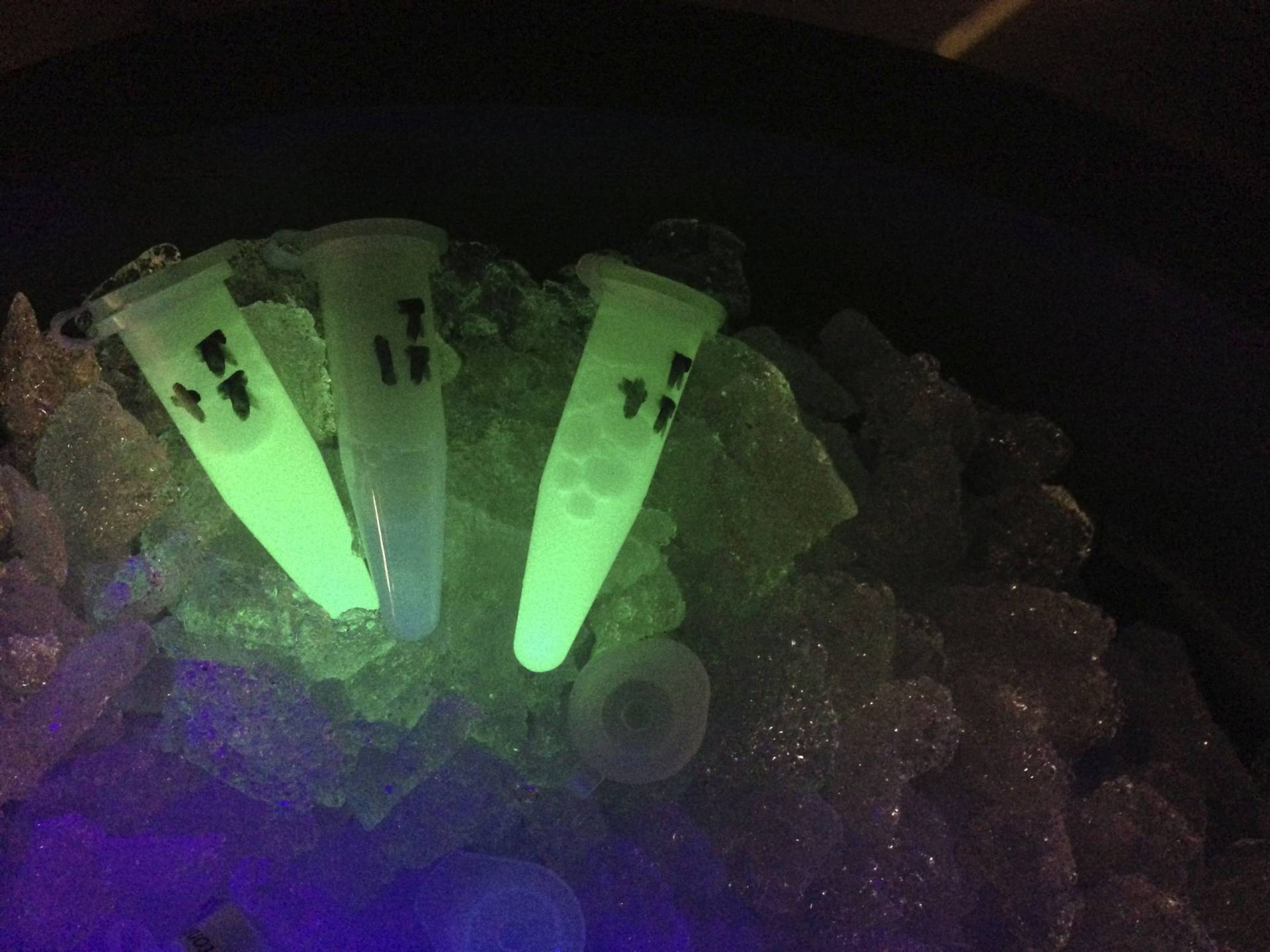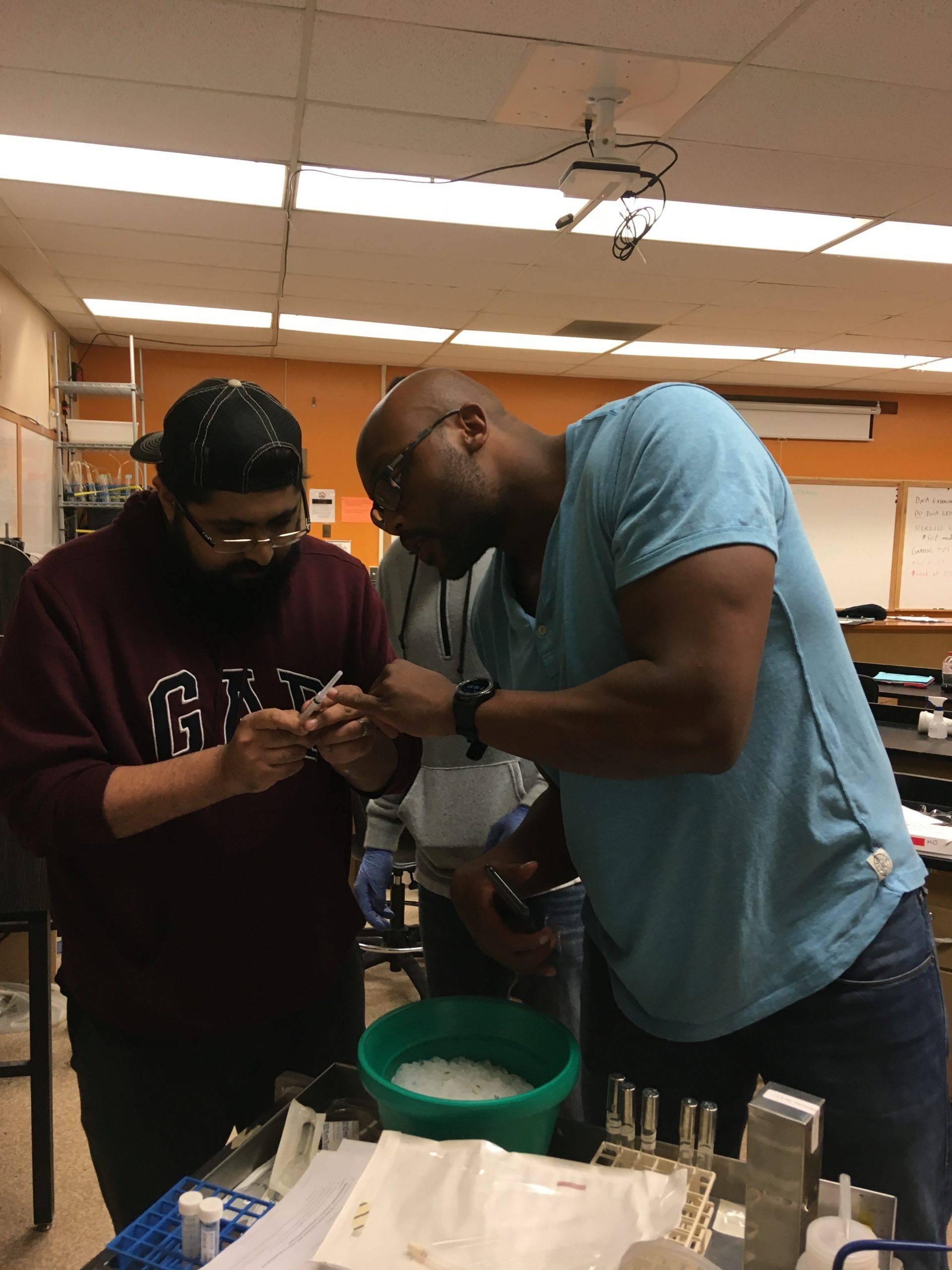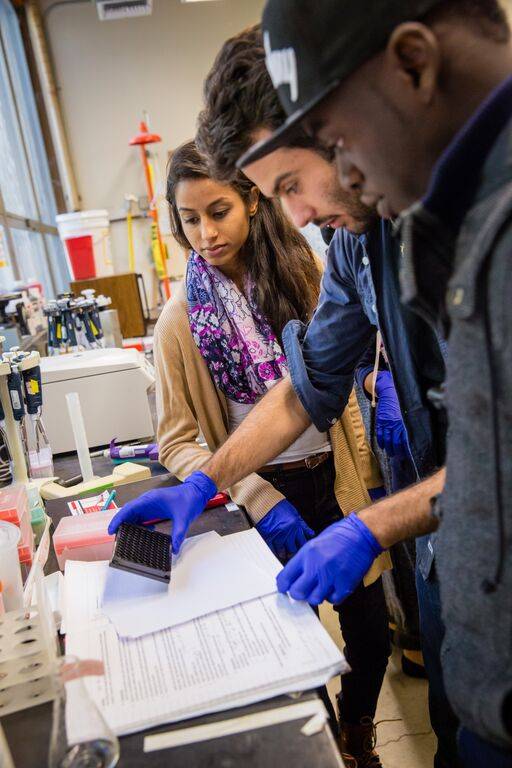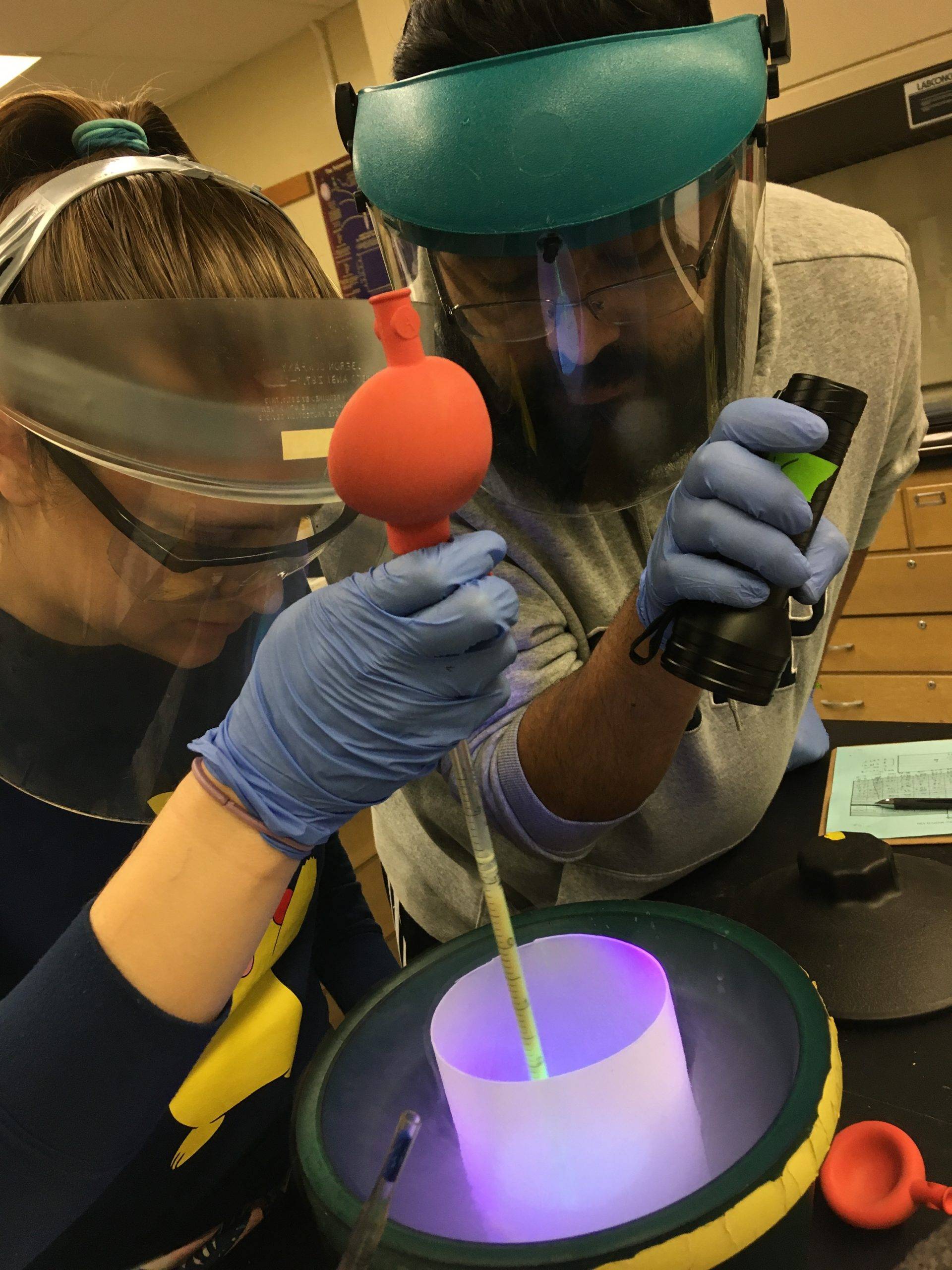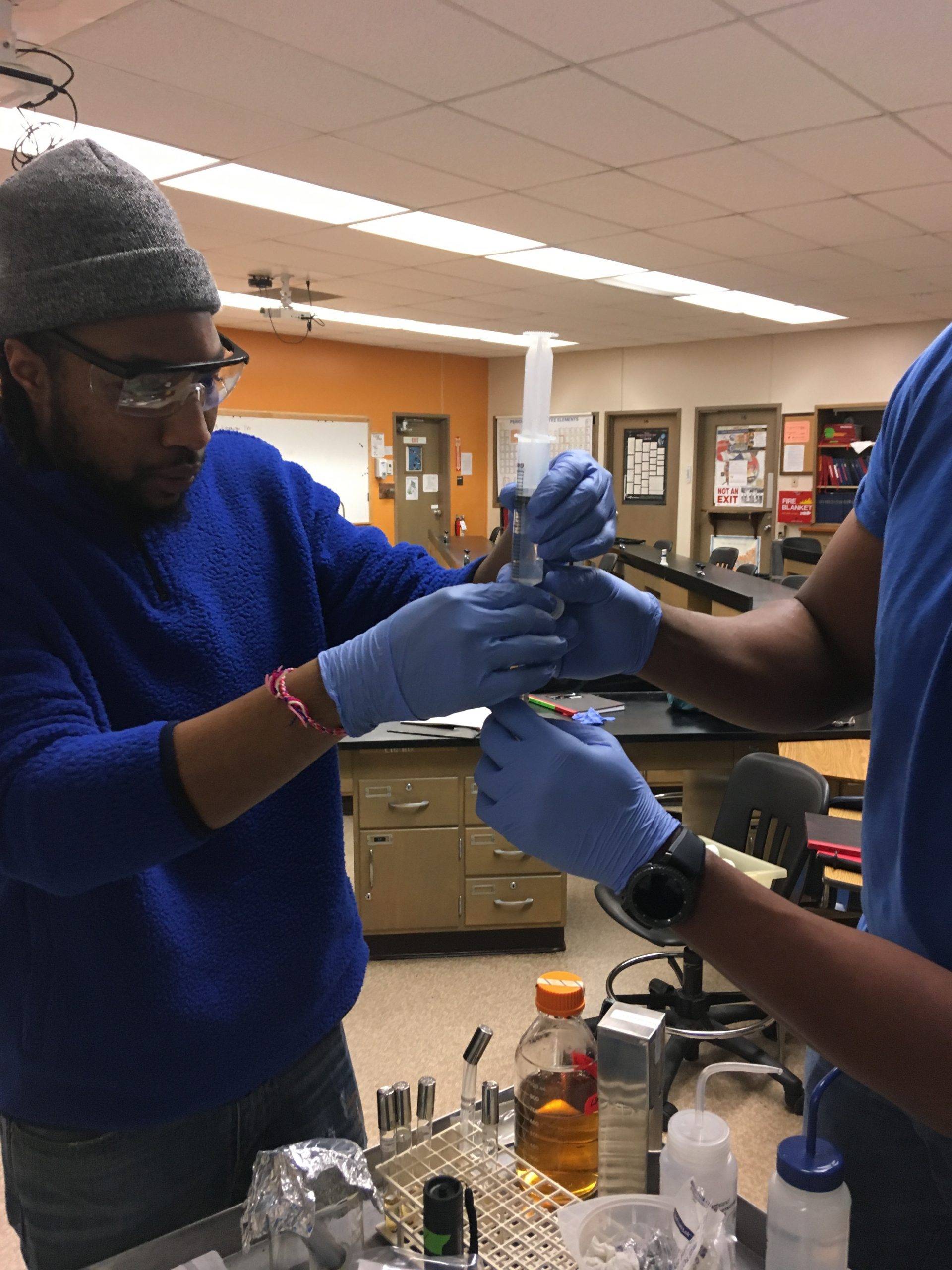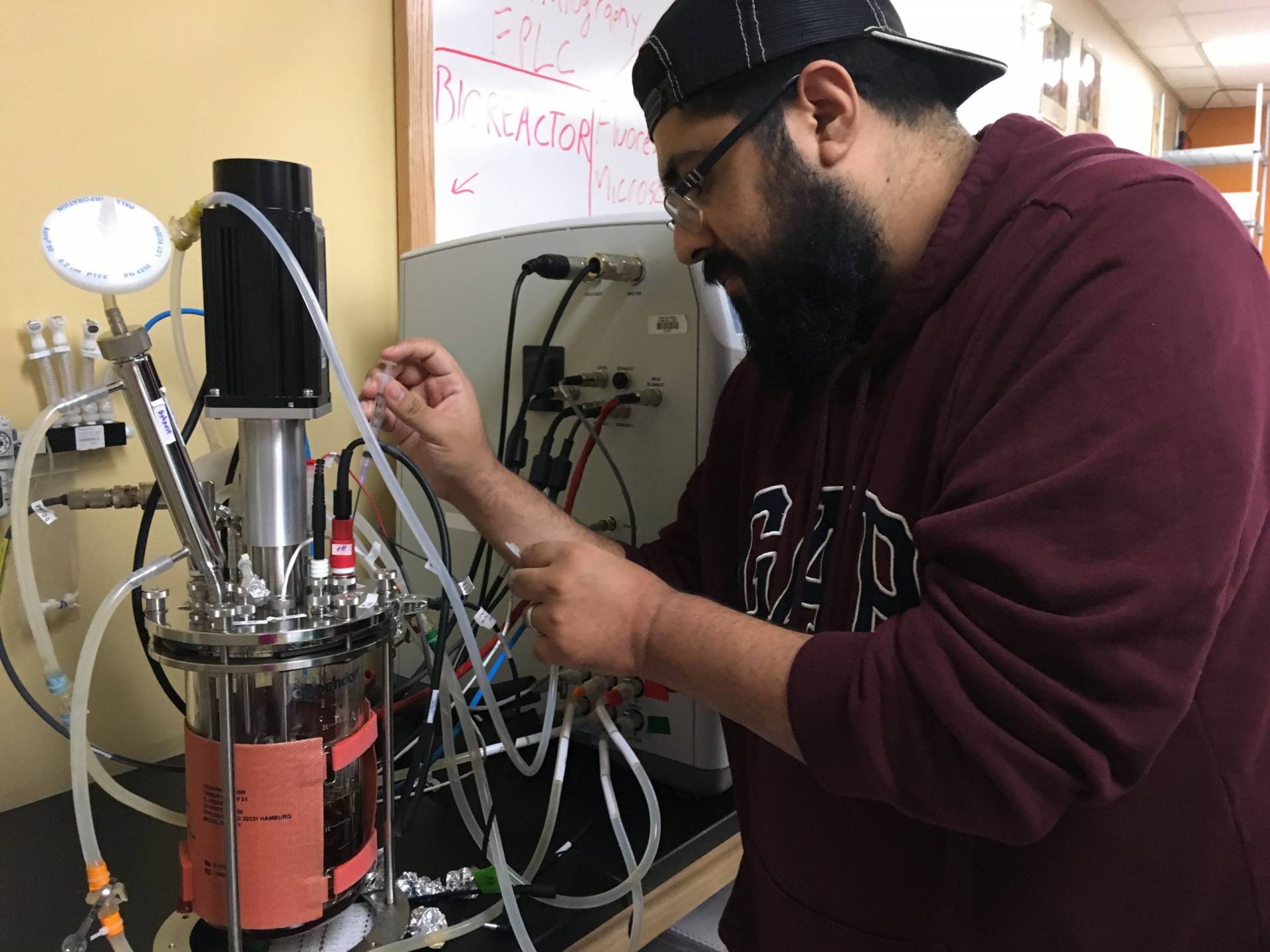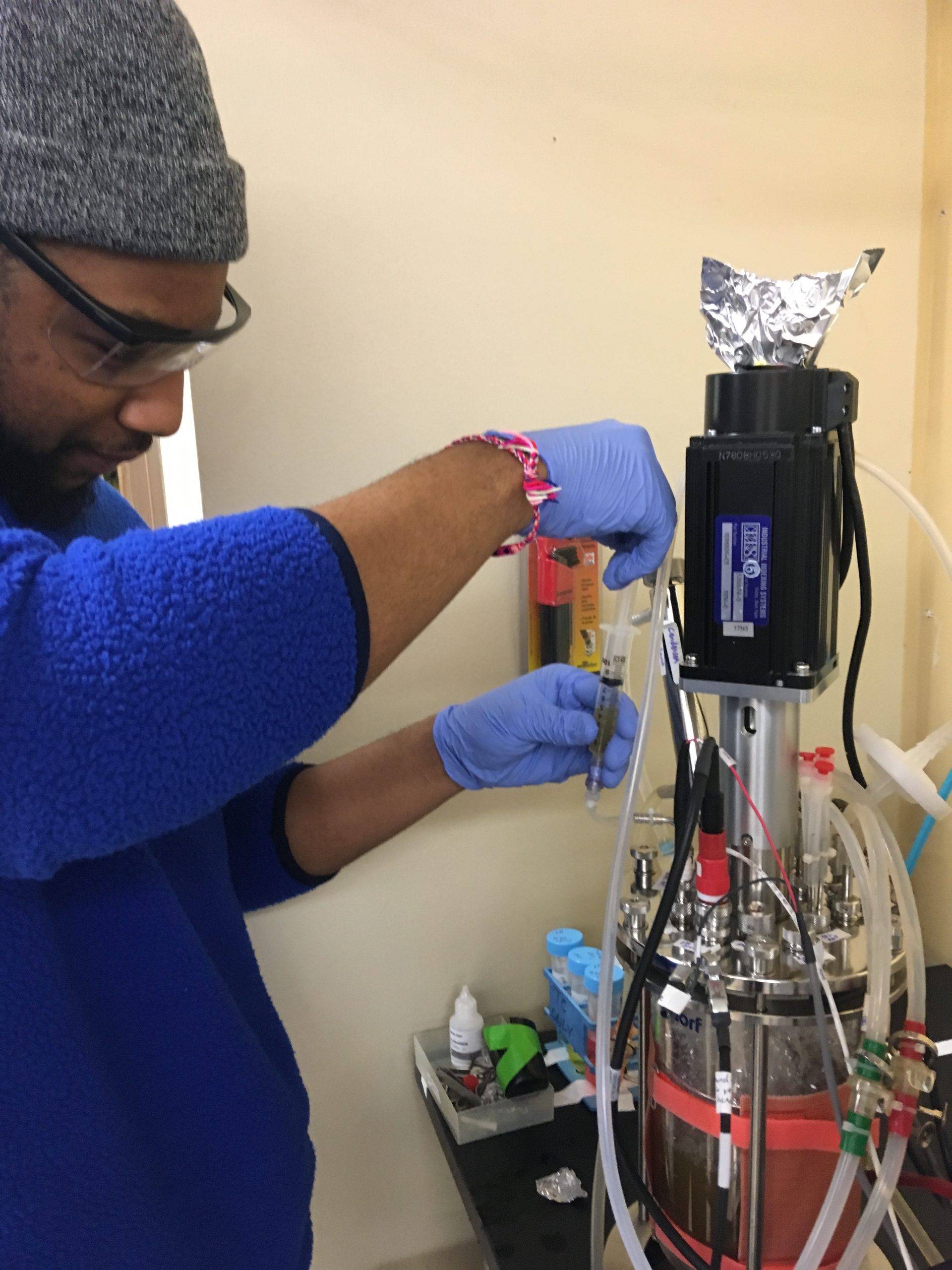BIOSC186: This course will teach students how Sample preparation, protein separation and purification, column chromatography, large-scale recovery, and use of assays for recovery analysis are studied. Students practice isolating a specific protein from a complex cell lysate using affinity and other forms of chromatography, and analyze the results by qualitative and quantitative protein assays. The size and purity of the isolated protein are analyzed by SDS-Polyacrylamide Gel Electrophoresis (SDS-PAGE). Application of current Good Manufacturing Process (cGMP), Good Laboratory Practice (GLP), and Standard Operating Procedures (SOP’s) in relation to these techniques will be addressed.
Skills in
- Cell culture in bioreactors
- Chromatography for purification and analysis
- Quantitative analysis of purified molecules
- laboratory calculations for solution preparation, separation methods, and data analysis
- correct usage of precision measuring devices (micropipetors, analytical balance, microtiter plate reader
- correct record keeping and/or maintenance of a laboratory notebook
- purification analysis data (yield, purity) to improve purification procedure
- sample and solution preparation for protein purification
Knowledge of
- Laboratory calculations for media and assays
- Scale up
- cGMP, GLP
- principles of commonly used protein assays and SDS-PAGE analysis
- use of an affinity resin for protein purification
- techniques for isolation of proteins from cells and tissue
- biological concepts related to basic DNA recombinant and protein isolation and analysis that are routinely used in the biotechnology lab
- Principles of separation methods including centrifugation, chromatography (e.g., ion exchange, size exclusion, hydrophobic interaction, affinity), electrophoresis and filtration as related to protein purification and product analysis
- Concentration and dilution calculations, standard curve generation, preparation of buffers resins, and reagents used in protein purification
- scale-up from 40mL culture to 2L bioreactor run
Ability to
- Analyze purification data (yield, purity)
- Batch Records
- Develop purification strategies based on molecule characteristics
- Contaminants and impurities
- GLP (Good Laboratory Practice), cGMP (Current Good Manufacturing Practice), SOP’s (Standard Operating Procedures), use of Lab
- Protein structure, oncogenes, cloning strategy for inducible protein overproduction
- Quantitative analysis of chromatographic fractions and purified protein with the Bradford assay
What types of jobs does it prepare for?
- Biomanufacturing (including pharmaceuticals)
- Quality Control Technician
- Media preparation
Core Competencies
- Recognize when information is ncecssary and respond to appropriate personnel (Manage and Communicate information)
- Errors in technical documents noted, reported, and changes suggested (Manage and Communicate information)
- Demonstrate correct record keeping and/or maintenance of a laboratory notebook.
- Perform calculations for solution preparation, separation methods, and data analysis
- Strong technical skills (precision in pipetting, weighing, sample handling, avoid contamination)
- Grow cells using aseptic techniques
- Media and other Solutions prepared correctly
- Use of antibody assay technologies (Western blot or ELISA) to detect and analyze the presence of molecules in samples
- Use of and analysis of data from other common techniques used in the field of cellular and molecular biology
